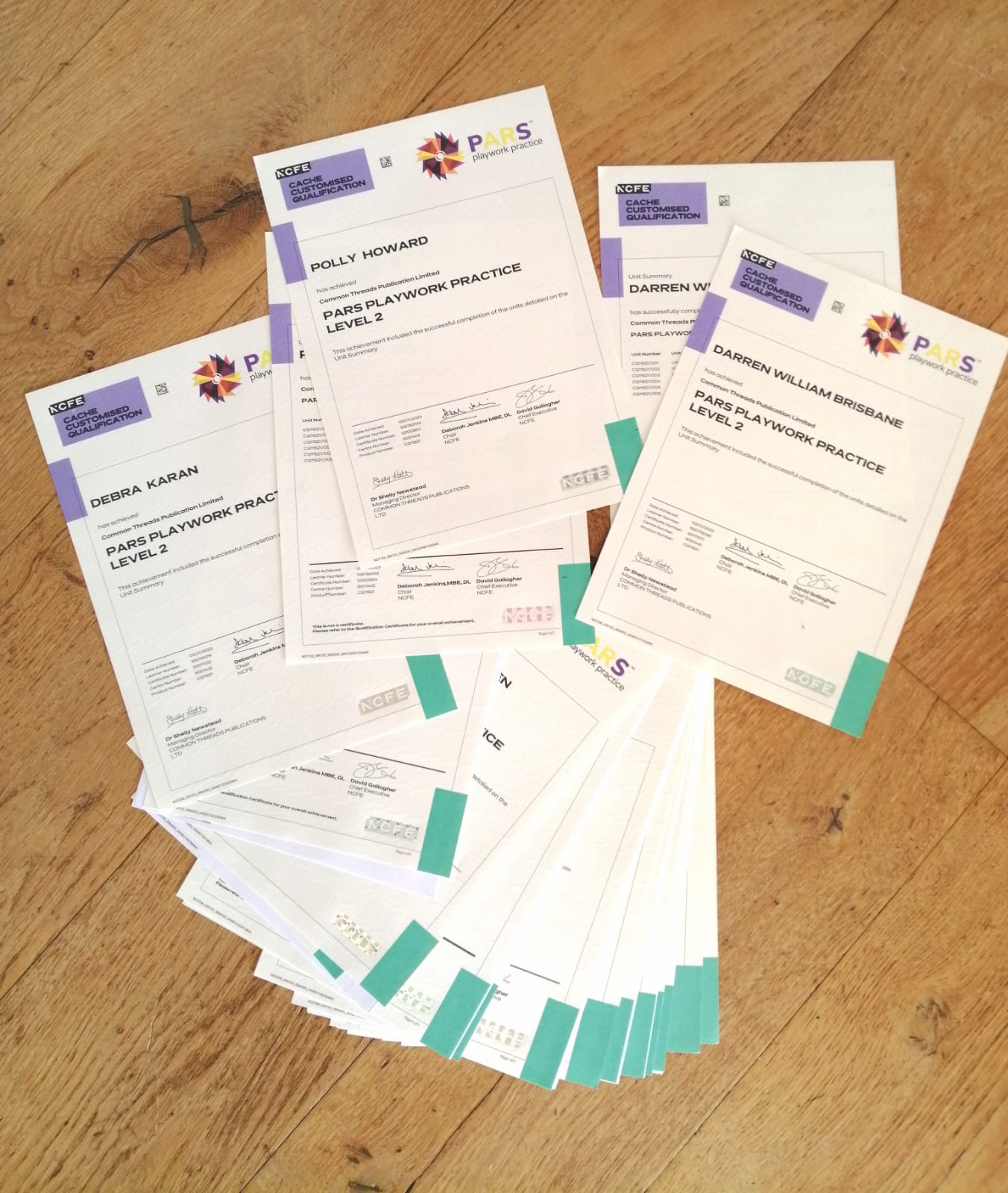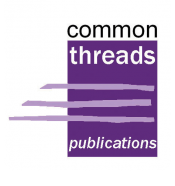Playwork was created as a new way of working with children in the adventure playgrounds set up across the UK just after the Second World War, and then spread to other places such as schools and hospitals from the 1960s. In the early 1990s the UK National Occupational Standards for Playwork were developed to qualify adults to work with school aged children in out of school care settings. Now the first OSHC (out of school hours care) practitioners (called ‘Educators’ in Australia) have just been qualified in playwork with the NCFE accredited PARS Playwork Practice Level 2 (PPP2) Customised Qualification.
PARS is a model of professional practice for adults which puts children at the very heart of services for children. Rather than develop structured and pre-planned activities, PARS practitioners create time and space for children to explore and develop their own interests from their own perspectives.
This approach fits perfectly with the revised national regulatory framework for out of school aged care (OSHC) in Australia. Associate Professor Jennifer Cartmel, a chief investigator for the recent update of the My Time, Our Place framework, has seen how Educators have used PARS to help them to improve the quality of their out of school services in line with the MOTP requirements. “The PARS training has fully aligned with the principles and practices in the Australian Framework. The OSHC services have noted that the impact and relevance of PARS is exceptional for its capacity to upskill educators who work with school age children in after school programs.”
In the UK, out of school settings have used their PARS qualifications to demonstrate to their regulatory bodies that their practice meets quality requirements. “Our OFSTED inspector was really impressed by the way that we allowed children lots of choice and freedom, and how the staff were constantly meeting the needs of the children at any given moment,” said Adam Smart, owner of Smartkidz, which runs several out of school clubs in schools across Cambridgeshire.
Another challenge common to out of school care providers in Australia and the UK is recruiting and motivating staff. Teams who have been trained in the PARS model often comment on the benefits of having a common PARS language which supports professional development by improving communication across the team. Amy Blane, an Educator in Queensland said, “One immeasurable benefit of PARS is now having the language to engage with, both in self-reflection and in conversation with other practitioners and stakeholders. It means that we can now discuss what we think is happening for the children and what we think we can do to enhance (or meaningfully not ruin) what is happening, and to start to work on a collective understanding of our practice as a service.” This common understanding about the role of the adults as PARS practitioners in out of school settings creates a sense of professionalism within staff teams.
Educators have also found that PARS training has given them the confidence to discuss realistic expectations for children’s free time with other stakeholders and with parents. Susie Berkhut, Director of Payne Road OSHC in Queensland, found that taking a proactive approach resulted in increased support for giving children to make their own decisions about how they spend their free time. “I was able to do a presentation of some of what I learned on the PARS course at our monthly parents and carers meeting. I received great feedback from being able to explain not just how but why we are choosing to practice in this way. For some, it changed the way they looked at what we did. Brought a few more enrolments too!”
One of the things that Educators often reflect on is that PARS is different to other approaches to working with children, such as teaching and early years work. This sometimes means that participants on PARS courses need to reflect on their own priorities and shift their own perspectives when it comes to working with children in out of school settings, as Isabelle Zastavnikovic from Castle Hill Funhouse reflected, “I have learnt a new perspective that resonates really well with my own values; and this new information is continuing to challenge my own practice.” PARS playwork practice is also different to what some Educators have learnt in other playwork courses, where the focus is very much on play. PARS practitioners take a much broader view of children and childhood and the importance of children having time and space to be children, which very much aligns with the MTOP principles, as Polly Howard, an OOSH Director in NSW, observed, “Being able to understand and articulate what we as educators can do to compensate children for the presence of adults in their time and space, while also allowing for adult intervention when necessary makes so much sense.”
PPP2 NCFE accredited certificates are now on their way to the first PARS playwork qualified Educators in NSW. We are currently planning the next PPP2 and PPP4 courses for Educators in Australia and are also looking forward to qualifying more PARS Licensed Trainers in Australia in the coming months. For more information please contact Fen at pars@commonthreads.org.uk.

